Membership of the FATF
Indonesia
The FATF granted full membership to Indonesia. The country underwent a mutual evaluation which the Plenary discussed and approved in February 2023.
Since then, Indonesia has worked to deliver on an action plan to address the key technical and effectiveness issues identified during the evaluation. Based on the country’s strong political commitment to complete the remaining items on its action plan and the continuing progress to improve its national AML/CFT/CPF programme, the Plenary agreed to grant Indonesia membership in the FATF, effective at the end of this Plenary. Indonesia will benefit from full membership rights and will be expected to meet the obligations of FATF membership. With Indonesia’s accession to membership, there are now 40 members in FATF, including all G20 countries.
Russian Federation
The suspension of the membership of the Russian Federation continues to stand. Following the statements issued since March 2022, the FATF reiterates that all jurisdictions should be vigilant to current and emerging risks from the circumvention of measures taken against the Russian Federation in order to protect the international financial system.
Strategic Initiatives
Improving Asset Recovery
Under the Singapore Presidency, the FATF has made it a priority to promote policies and actions that will ensure that asset recovery is a key pillar of every country’s approach to tackling money laundering and terrorist financing. Globally, countries are only recovering a dismal fraction of the assets generated by criminal activity. This leaves criminals free to enjoy their ill-gotten gains, fuels further criminal activity and distorts the legitimate economy.
The FATF has spearheaded global efforts to strengthen the legal and operational frameworks which underpin the effectiveness of countries’ asset recovery actions. In partnership with INTERPOL, the FATF has also brought together policymakers and operational experts in the FATF-INTERPOL Roundtable Engagements (FIRE) to improve asset freezing, seizure and confiscation results. The FIRE deliberations highlighted the need for stronger domestic legal frameworks on asset recovery, robust operational structures, and enhanced international cooperation.
At this Plenary, Delegates welcomed these findings and agreed on major amendments to the FATF Recommendations that will provide countries with enhanced tools to more effectively freeze, seize, and confiscate criminal property, both domestically and through international cooperation.
The revised Recommendations require countries to have policies and operational frameworks that prioritise asset recovery and establish non-conviction-based confiscation regimes in their legal systems. They also provide new features, such as the power to suspend transactions related to money laundering, terrorist financing and serious crime. This will allow relevant national authorities to secure criminal assets more swiftly, increasing the chances of successful confiscation and potential recovery for victims.
The revised Standards are a major milestone that will help bring about the necessary cultural shift to ensure that asset recovery becomes a core component of an effective crime prevention and mitigation strategy. It is now up to each country to effectively implement these revised requirements in their national frameworks, and use these tools to deprive criminals of their illicit assets and contribute to a safer society.
The FATF will now work to revise relevant parts of its assessment Methodology for the next round of mutual evaluations to take into account the changes to the Recommendations.
The updated Recommendations will be published in November
Collaboration with Asset Recovery Networks (ARINs): Recommendations and Final Report
ARINs are informal international or regional networks that bring together law enforcement and judicial practitioners operating in the field of asset tracing, freezing, seizure and confiscation. They have an important role in improving the effectiveness of international asset recovery efforts. The FATF completed a report analysing the ARIN model. It includes recommendations aimed at strengthening the FATF Global Network’s collaboration with the ARINs and ensuring that investigators and prosecutors use ARINs effectively to ‘follow the money’ across borders and recover assets in transnational crime cases.
The report will be published in November.
Combating the Abuse of NPOs for Terrorist Financing
The FATF agreed on amendments to the FATF Recommendations that aim to protect NPOs from potential terrorist financing abuse through the effective implementation of risk-based measures. These amendments are the result of intense discussions and active consultations with public and private sector stakeholders, including through a public consultation that ended in August 2023.
The non-profit sector carries out essential work, often in very challenging circumstances and regions, but a misapplication of the FATF Recommendations has had a chilling effect on legitimate and much-needed charitable and humanitarian activities. The FATF’s work to identify and analyse these unintended consequences highlighted that countries often poorly apply the FATF’s risk-based approach.
The FATF has clarified its requirements in close consultation with the non-profit sector. The revisions make it clear that Recommendation 8 does not apply to the entire not-for-profit sector, but only to the sub-set that falls within the FATF definition of an NPO. The revised Standard requires countries to identify the types of organisations that fall within the FATF definition, to assess their risks of abuse for terrorist financing and to have in place focused, proportionate and risk-based measures to mitigate these risks. It clarifies the approach for low-risk NPOs and the need for countries to ensure oversight or monitoring, but not go as far as supervising the sector in the same way they would for the financial or non-financial sectors. The revised Recommendation also aims to prevent the undue disruption or discouragement of legitimate charitable activities through the implementation of risk-based measures. It underlines that countries may also consider, where they exist, self-regulatory measures and related internal control measures in place within the NPOs.
The FATF will now work to revise relevant parts of its Methodology for the next round of mutual evaluations. In the next round, each country in the Global Network will be assessed against these revised Standards and will need to demonstrate that they are taking a risk-based approach to preventing misuse of the non-profit sector, without disrupting or discouraging legitimate charitable activities.
The updated Recommendations will be published in November.
Updated Best Practices Paper on Combating the Abuse of Non-Profit Organisations
The FATF also updated its Best Practices Paper to reflect the amendments to Recommendation 8 and to assist in the effective implementation of these revised requirements. The updated best practices paper reflects input from relevant stakeholders, including from a public consultation in July-August 2023.
The Best Practices paper helps countries, the non-profit sector and financial institutions understand how best to protect relevant NPOs from abuse for terrorist financing, without unduly disrupting or discouraging legitimate charitable activities. It also helps stakeholders by identifying examples of bad practices and specifically explains how not to implement the FATF’s requirements.
With the revisions to Recommendation 8 and the updated Best Practices paper, the FATF has fully clarified how its Standards apply to the non-profit sector in line with the risk-based approach. This leaves no room for implementation of measures that are not proportionate to the assessed terrorist financing risks and are therefore overly burdensome or restrictive for organisations working in the not-for-profit realm.
The Best Practices paper will be published in November.
Crowdfunding for Terrorism Financing
Crowdfunding is an innovative fundraising solution to finance ideas, projects or business ventures. While the vast majority of crowdfunding activity is legitimate, research by the FATF shows that the Islamic State of Iraq and the Levant (ISIL), Al-Qaeda and other ethnically or racially motivated terrorist individuals and groups have exploited it to fund their terrorist activities. In order to address this emerging terrorist financing risk, the FATF finalised a report that analyses how terrorists have exploited fundraising platforms and crowdfunding activities on social media to seek funding for their terrorist cause from a global audience. It identifies and explores the four main ways in which terrorists misuse crowdfunding platforms. Given the link between crowdfunding and other financial and non-financial sectors, countries should fully implement the FATF Standards relevant to virtual assets, NPOs and money or value transfer services, and avoid treating crowdfunding as a siloed sector.
The report, which draws on experiences from the FATF Global Network, industry experts, academia and civil society examines the challenges faced in detecting and preventing terrorist financing through the crowdfunding ecosphere, including the complexity of crowdfunding operations, the use of anonymising techniques, and lack of training and terrorist financing expertise within the crowdfunding industry to detect suspicious activity. It also highlights good practices, starting with including crowdfunding in national terrorist financing risk assessments, outreach to the crowdfunding sector, and strong domestic and international information sharing mechanisms. A list of risk indicators aims to help public and private sector entities, and the general public, identify potential attempts at terrorist financing activity using crowdfunding.
The report will be published on 31 October.
Illicit Financial Flows from Cyber-Enabled Fraud
Effective measures to combat money laundering and terrorist financing rely on an in-depth understanding of the evolving financial crime landscape. Cyber-enabled fraud is a major transnational organised crime that has grown exponentially in recent years, both in volume of frauds reported and their global spread. Such crimes can have a devastating impact on individuals, organisations, and economies worldwide, causing significant financial losses and eroding trust in digital systems. The transnational nature of this crime, with proceeds of cyber-enabled fraud often rapidly transferred to different jurisdictions, makes this a global concern.
As digital innovation continues to advance, so will the sophistication and scale of cyber-enabled fraud, if left unchecked. The FATF, in partnership with the Egmont Group and INTERPOL, analysed the methods used for cyber-enabled fraud, its links to other crimes and how criminals may exploit vulnerabilities in new technologies. The report highlights examples of national operational responses and strategies that have proven successful in tackling cyber-enabled fraud. This includes the need to break down siloes and accelerate and enhance collaboration across various sectors and on both the domestic and international levels. The report also identifies risk indicators and useful anti-fraud requirements and controls, that may help public and private sector entities detect and prevent cyber-enabled fraud and related money laundering.
It is essential that countries work together and take action to stop the escalating threat of cyber-enabled fraud. The report identifies three priority areas in which jurisdictions should act to tackle this crime and related laundering more effectively: enhancing domestic co-ordination across the public and private sectors, supporting multi-lateral international collaboration, and strengthening detection and prevention by promoting awareness and vigilance and facilitating reporting of such crimes.
The report will be published in November.
Misuse of Citizenship and Residency by Investment Programmes
Citizenship and residency by investment (CBI/RBI) programmes are government-administered programmes that grant citizenship or residency to foreign investors by expediting or bypassing normal migration processes. These programmes can help spur economic growth through foreign direct investment, but they are also attractive to criminals and corrupt officials seeking to evade justice and launder the proceeds of crime amounting to billions of dollars.
In response to the FATF Ministers’ call in April 2022 for greater focus on corruption, the FATF completed a joint project with the Organisation for Economic Co-operation and Development (OECD) that explores the money laundering and financial crime risks associated with CBI/RBI programmes and their impact on public integrity, tax and migration. Properly managed, CBI or RBI programmes can benefit both host countries and individuals, but in practice, such programmes bring significant risks of money laundering, fraud, and other forms of misuse. The report highlights how CBI programmes can allow criminals more global mobility and help them hide their identity and criminal activities behind shell companies in other jurisdictions. It highlights the vulnerabilities of these complex and international investment migration programmes, including the frequent use of intermediaries, involvement of multiple government agencies, abuse by professional enablers and lack of proper governance of the CBI/RBI programmes.
The report proposes measures and cites examples of good practice that can help policy makers and those responsible for managing the investment migration programmes to address these risks. These include an in-depth analysis and understanding of how criminals can exploit CBI or RBI programmes and how Governments can incorporate risk mitigation measures, such as multi-layered due diligence, in the design of their investment migration programmes. The report emphasises that the elevated risks of money laundering and financial crime in these investment migration programmes relates not only to the applicant, but also the professional enablers and intermediaries involved in the process. It is therefore essential to ensure clarity around the respective roles and responsibilities of the various parties involved in RBI/CBI programmes to be able to detect fraudulent activity.
The report will be published in November.
Beneficial Ownership and Transparency
Assessing beneficial ownership and transparency in the next round of Mutual Evaluations
The Plenary agreed on amendments to the Methodology for the next round of mutual evaluations that sets out how assessment teams will determine the effective implementation of the FATF’s updated beneficial ownership and transparency requirements.
In March 2022 and February 2023 respectively, the FATF strengthened its beneficial ownership Standards. The FATF’s mutual evaluation process plays a crucial role in ensuring that countries are taking effective action to close the loopholes and regulatory weaknesses that allow shell companies or other legal persons and arrangements to be used as a cover for criminal activity. In the next round of mutual evaluations, all countries will be assessed against the FATF’s strengthened beneficial ownership requirements.
The revised Methodology for the next round of assessments will be published in November.
FATF Risk-Based Guidance - Recommendation 25 on Beneficial Ownership and Transparency of legal arrangements - public consultation
The FATF is developing updated risk-based guidance on Recommendation 25 on Beneficial Ownership and Transparency of Legal Arrangements. The updated guidance reflects the February 2023 revisions to Recommendation 25 and complements the existing guidance on Recommendation 24 on legal persons. The guidance aims to help stakeholders from the public and private sectors that are involved in trusts or similar legal arrangements to assess and mitigate money laundering and terrorist financing risks.
The Plenary agreed to release the revised guidance for public consultation and expects to finalise this work at its February 2024 Plenary meeting.
Compliance with the FATF Standards
Mutual Evaluation of Brazil
The FATF discussed and adopted the joint FATF/GAFILAT mutual evaluation report of Brazil which assessed the effectiveness of Brazil’s measures to combat money laundering, terrorist financing and proliferation financing, and their compliance with the FATF Recommendations.
The Plenary concluded that Brazil has improved its AML/CFT/CPF regime since its last assessment in 2010 and is achieving some positive results. Brazil demonstrated strong international cooperation, risk assessment and policy coordination. However, the country needs to strengthen cooperation and coordination between certain authorities and improve prosecution of money laundering. Brazil demonstrated strong supervision of most of the financial sector, but the country should address the gaps in supervision of its non-financial sector which is currently leaving sectors such as lawyers and company service providers completely unregulated for AML/CFT/CPF. Brazil should focus more on the recovery of assets linked to crime and terrorism. With the exception of corruption-related assets, its confiscation results are not entirely in line with the risks the country faces from crimes such as drug trafficking and environmental crime, and criminal organisations.
Brazil’s measures to combat the financing of terrorism have improved in recent years but require major improvements to be effective.
The FATF will publish the report by December after the FATF’s quality and consistency review is completed.
High-risk and other monitored jurisdictions
Jurisdictions under Increased Monitoring
Jurisdictions under increased monitoring are actively working with the FATF to address the strategic deficiencies in their regimes to counter money laundering, terrorist financing and proliferation financing. When the FATF places a jurisdiction under increased monitoring, it means the country has committed to implement an Action Plan to resolve swiftly the identified strategic deficiencies within agreed timeframes. At this Plenary, the FATF added Bulgaria to the list of jurisdictions subject to increased monitoring.
Jurisdictions no Longer under Increased Monitoring - Albania, Cayman Islands, Jordan and Panama
The FATF plenary congratulated Albania, the Cayman Islands, Jordan and Panama for their significant progress in addressing the strategic AML/CFT deficiencies previously identified during their mutual evaluations. These jurisdictions had committed to implement an Action Plan to resolve swiftly the identified strategic deficiencies within agreed timeframes. These countries will no longer be subject to the FATF’s increased monitoring process.
This comes after a successful on-site visit to each of these countries. Each country will work with the FATF-Style Regional Body, of which it is a member, to continue strengthening their AML/CFT/CPF regimes.
Jurisdictions subject to a call for action
FATF identifies countries or jurisdictions with serious strategic deficiencies to counter money laundering, terrorist financing, and proliferation financing. These jurisdictions are subject to a call for action to protect the international financial system. No new countries/jurisdictions were added to this list.
The next FATF Plenary will be held in February 2024.

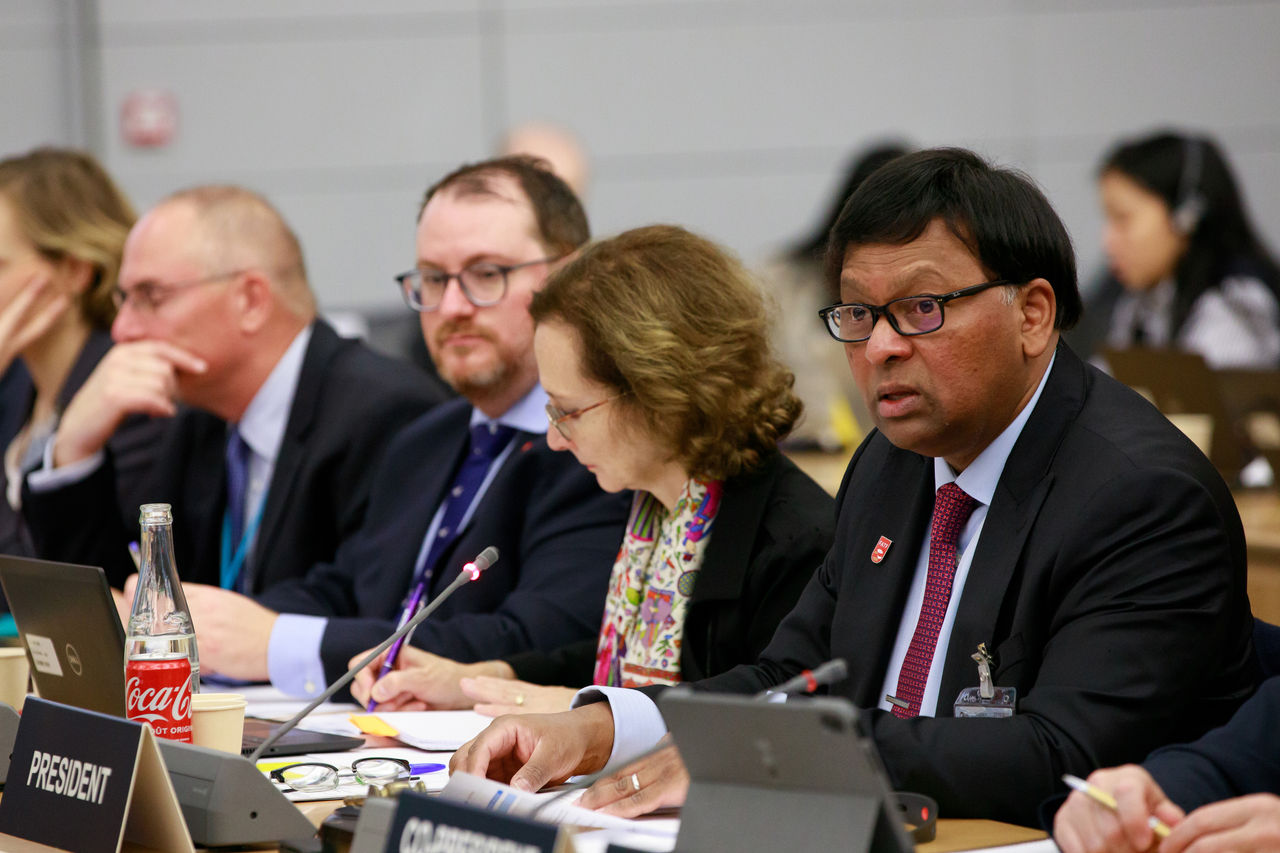


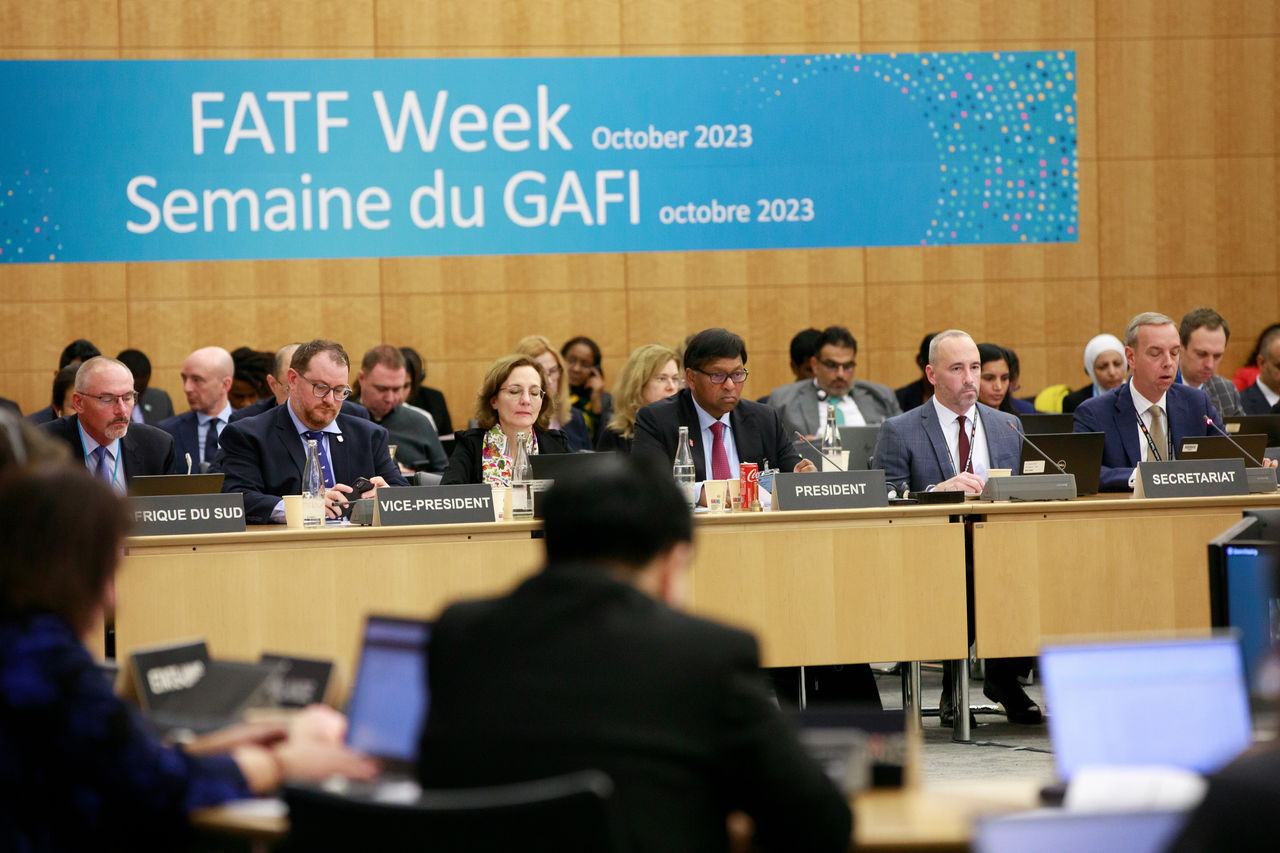
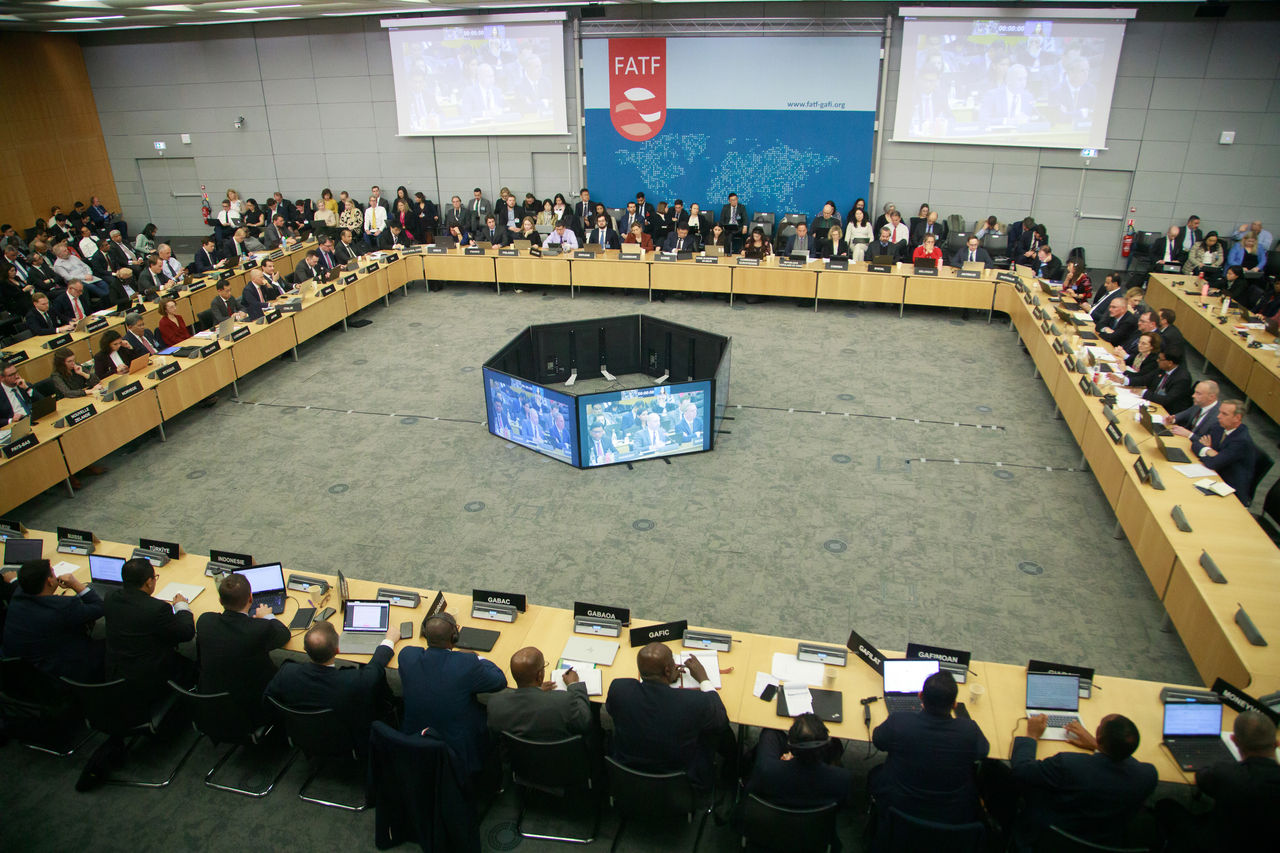
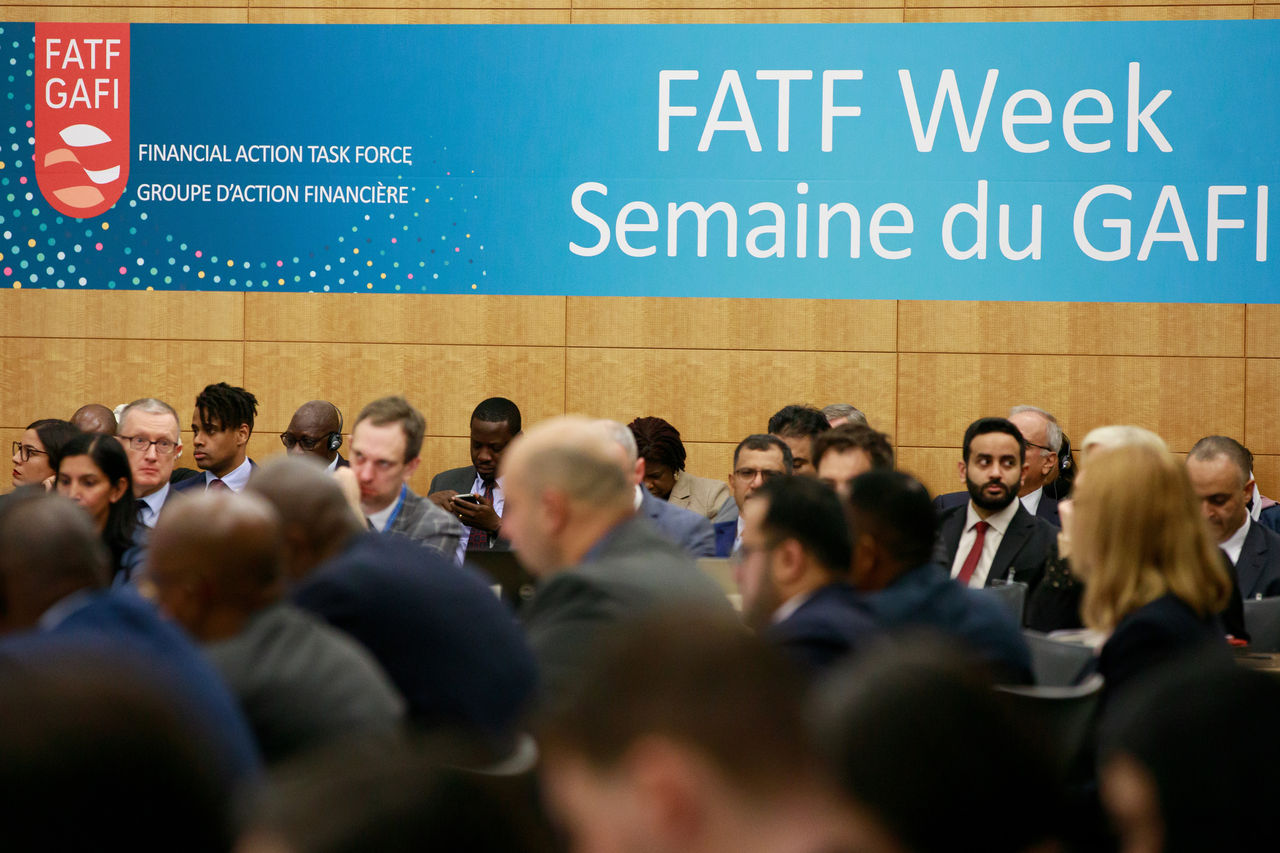
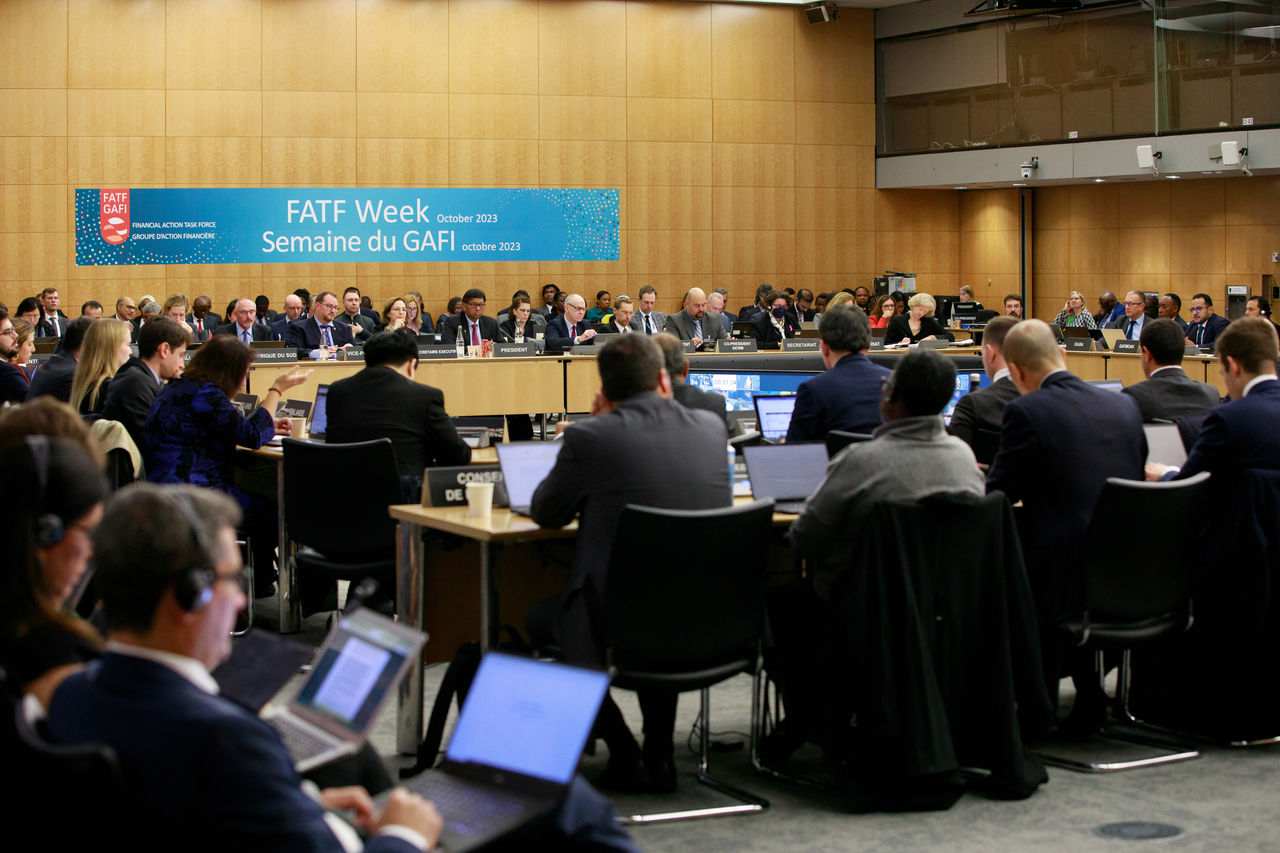
 Twitter
Twitter
 Facebook
Facebook
 Instagram
Instagram
 Linkedin
Linkedin
